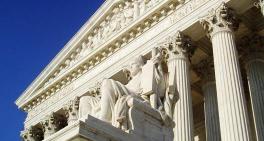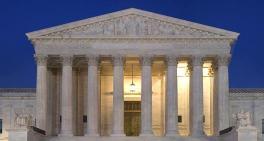U.S. Bankruptcy Courts V
United States Courts
Bankruptcy is not the only legal status that an insolvent person may have, and the term bankruptcy is therefore not a synonym for insolvency. In some countries, such as the United Kingdom, bankruptcy is limited to individuals, and other forms of insolvency proceedings are applied to companies. In the United States, bankruptcy is applied more broadly to formal insolvency proceedings. In France, the cognate French word banqueroute is used solely for cases of fraudulent bankruptcy, whereas the term faillite is used for bankruptcy in accordance with the law.
New Mexico - ECF
New York Eastern - ECF
New York Northern - ECF
New York Southern - ECF
New York Southern (web) - ECF
New York Western - ECF
North Carolina Eastern - ECF
North Carolina Middle - ECF
North Carolina Western - ECF
North Dakota - ECF
Northern Mariana Islands - ECF
Ohio Northern - ECF
Ohio Southern - ECF
Oklahoma Eastern - ECF
Oklahoma Northern - ECF
Oklahoma Western - ECF
Oregon - NextGen
Pennsylvania Eastern - ECF
Pennsylvania Middle - ECF
Pennsylvania Western - ECF
Related listings
-
U.S. Courts of Appeals
United States Courts 07/30/2017There are 13 appellate courts that sit below the U.S. Supreme Court, and they are called the U.S. Courts of Appeals. The 94 federal judicial districts are organized into 12 regional circuits, each of which has a court of appeals. The appellate ...
-
U.S. Supreme Court
United States Courts 07/30/2017U.S. Supreme Court The Supreme Court is the final judge in all cases involving laws of Congress, and the highest law of all — the Constitution. The Supreme Court, however, is far from all-powerful. Its power is limited by the other two branches...
-
National Courts
United States Courts 06/30/2017Judicial Panel On Multidistrict Litigati - ECF U.S. Court Of Federal Claims - ECF U.S. Court Of International Trade - ECF

Is Now the Time to Really Call a Special Education Lawyer?
IDEA, FAPE, CHILD FIND and IEPs: The Individuals with Disabilities Education Act (IDEA) guarantees all children with disabilities to a free appropriate public education (FAPE). FAPE starts with a school’s responsibility to identify that a child has a disability (Child Find) and create an Individualized Education Program (IEP) to suit the needs of the child. Parents need to be persistent, dedicated and above all else aware of the many services and accommodations that their child is entitled to under the law. As early as this point within your child’s special education, many parents will often find themselves in the situation asking, “is now the time to really call a special education lawyer?” Here are a few things to consider when asking yourself that question.




